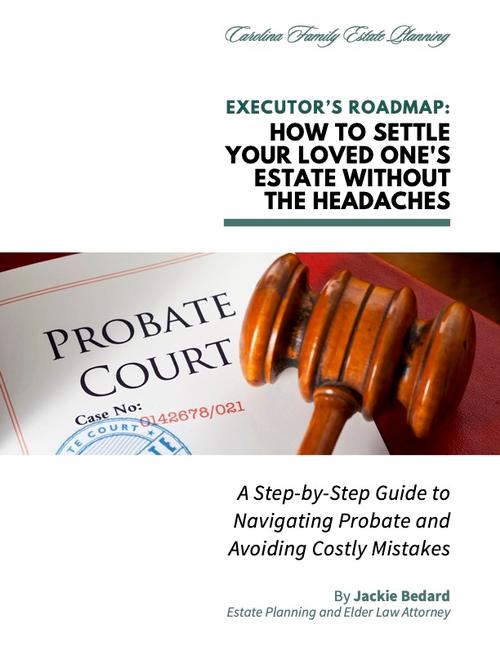Whether you have just lost a spouse or a parent, believe you may be entitled to a part of an estate, or just received a letter from the court announcing you as an Executor of a family member's estate, you could probably use some help. It’s often a challenge to know where to start in the probate process, and maybe you’re unsure what questions to ask, whom to ask, or if you're getting good advice and doing it right. An estate administration attorney, also called a probate attorney, assists the Executor with all their responsibilities.
.jpeg)
Many people accept being a family member or friend’s Executor but do not really know what it entails.
Serving as an Executor can be an incredibly time-consuming process. Even a modest estate can require 10-20 hours per week of your attention, depending on what phase of the probate process you are in. Plus, being named as an Executor also comes with personal liability. If you make a mistake, the court can hold you personally liable and may even have to pay the Estate out of your own personal funds.
When you hire a probate attorney, you are paying for assistance with all of the duties of being an Executor. Here are a few specific things that a probate attorney helps with:
1. Saves Time & Potentially Money
When you hire a probate attorney to handle things, you have freed up a lot of hours in your personal schedule that would have otherwise been spent settling the Estate. Being an Executor is a lot of work and responsibility to take on—particularly at an emotional time while you are grieving the loss of your loved one and trying to meet your other day-to-day duties such as family obligations and “day job” requirements.
There are also instances where your attorney can spot monetary savings to the Estate, such as tax savings opportunities or opportunities to negotiate a discount on settling claims of the Estate.
2. Handles Court Filings
After someone passes away, the executor cannot just start paying bills from the decedent’s bank account or distribute personal property. The Estate must first be opened with the court, and you must then be formally appointed by the court. With a probate attorney, these filings and any necessary court communication are handled by the attorney & their staff instead of by you without any help.
Did you know… that opening an estate can sometimes take at least six weeks from the time you file your documents? Meaning if something is messed up in your documents, you may not know until six weeks later, and then you will have to start the process all over again. The easiest option is to ensure it’s done right the first time! A probate attorney and their staff help ensure that the proper filings are made promptly and correctly.
3. Shifts Liability
As we mentioned above, you can be held personally liable if you make mistakes in your role. However, when you hire a probate attorney, you reduce the chance for mistakes to be made throughout the process. Your liability exposure is also limited as liability shifts to the law firm’s professional malpractice insurance.
Please note that while it is strongly encouraged in North Carolina, malpractice insurance is not required for NC attorneys. Therefore, if you wish to hire a North Carolina law firm to assist you, you should be careful to avoid hiring a probate attorney who does not have malpractice insurance.
Is a Probate Attorney the Same as an Estate Planning Attorney?
While some individuals act as both probate and estate planning attorneys, the legal services provided for probate versus estate planning are different. A probate attorney helps after someone has died, while an estate planning attorney helps before death. A probate attorney helps settle an estate, while an estate planning attorney helps you structure your Estate.
A probate attorney cannot help you avoid probate, but an estate planning attorney can. If you meet with an estate planning attorney and establish a Revocable Living Trust as your main estate planning document instead of a Will, any of your assets that are owned by your Trust pass to your beneficiaries outside of probate. This means that your loved ones would not have to wait for a court to say it is okay for them to receive whatever you have left them. This also means your loved ones would not have to fool with the time-consuming process of probate, or if they did, it would be for very few assets.


